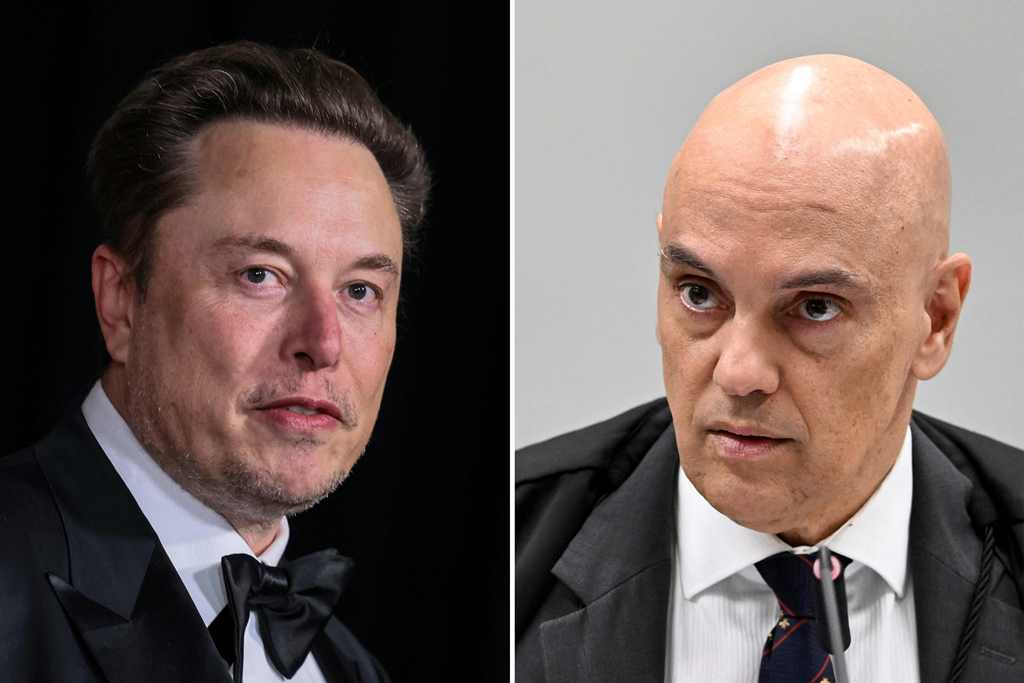SAO PAULO (AP) — A Brazilian Supreme Court justice on Friday seized about USD3 million from bank accounts belonging to social media platform X and satellite-based internet service provider Starlink, both companies controlled by tech billionaire Elon Musk.
The move by Justice Alexandre de Moraes was aimed at collecting funds that are equivalent to the amount that X owes to the country in fines. The bank accounts of the two companies have since been unfrozen.
Legal analysts have questioned de Moraes’ prior decision to freeze Starlink’s bank account to pay for cases related to X. While Musk owns both X and SpaceX, which operates Starlink, the two companies are separate entities.
Brazil’s Supreme Court said Friday in a statement that de Moraes ruled to transfer more than BRL7.2 million (USD1.3 million) from an X bank account and almost BRL11 million (USD2 million) from a Starlink account.

De Moraes made the decision on Wednesday, Brazil’s Supreme Court said. His ruling on the case is yet to be made public.
Brazil’s Supreme Court also said that the banks that hold accounts of the two companies were informed on Thursday they had complied with the decision.
“After the payment of the full amount that was owed, the justice (de Moraes) considered there was no need to keep the bank accounts frozen and ordered the immediate unfreezing of bank accounts/financial assets,” the Brazilian Supreme Court said.
X did not immediately respond to a request for comment from The Associated Press.
The social media platform has been under fire in Brazil since it refused to remove content flagged as illegal by the Supreme Court justice.
De Moraes is the same justice who suspended X in Brazil due to Musk’s decision to not have a legal representative for the company in the South American nation, which is against the law.
The company has claimed that de Moraes wants an in-country representative so that local authorities can exert leverage by having someone to arrest.
Many legal analysts, including some who have supported de Moraes’ rulings related to X, disagree with charging Starlink for X’s fines.
“Starlink is a different company. Belonging to the same economic group doesn’t mean it is also responsible for a debt it did not take part of. It didn’t even have a chance to defend itself,” Lênio Streck, a renowned Brazilian jurist, said in his social media channels. “What could Starlink have done to avoid what other company did?”
Luís Henrique Machado, a law professor at the IDP university in the capital, Brasilia, said de Moraes’ decision is consistent.
“The social media company was sanctioned for not removing content after an order of the Supreme Court amid ongoing investigations. It is totally understandable that the judge requests that the fines be paid,” Machado said. “The ruling is legitimate in imposing the transfer of the amounts in compulsorily fashion.”
Since last year, X has clashed with de Moraes over its reluctance to block some users, mostly far-right activists accused of undermining Brazilian democracy. Musk has called the Brazilian justice a dictator and an autocrat due to his rulings affecting his companies in Brazil.
On Aug. 31, Musk’s social media platform was banned nationwide and de Moraes set a USD9,000 daily fine for anyone using a virtual private network (VPN) to skirt the suspension. Brazil’s X users mostly started washing up on Threads and Bluesky.
On Saturday, tens of thousands of supporters of former Brazilian President Jair Bolsonaro flooded Sao Paulo’s main boulevard for an Independence Day rally, buoyed by de Moraes’ decisions on X, a ban they say is proof of their political persecution.
X had 22 million users in Brazil, according to estimates in the Digital 2024: Brazil report, just one-sixth the number on Instagram, and about one-fifth of Facebook or TikTok.
Since January 2022, when Starlink began operations in Brazil, it has captured a 0.5 per cent share of the internet market, according to Brazil’s telecommunications agency Anatel.


